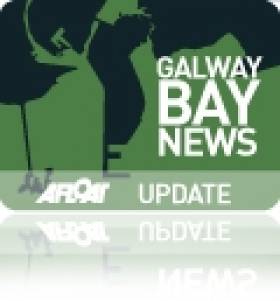Displaying items by tag: Civil Defence
Search For Galway Man Extends To Coastal Areas
#GalwayBay - Galway Bay FM reports that the search for a missing Galway man has been expanded to a coastal search.
Tom Ward, 39, was last seen in Galway city centre on 7 February, and was reported missing by his family 10 days later.
Gardaí stepped up their search to the shoreline areas of Galway Bay adjoining the city earlier this week, enlisting Civil Defence volunteers to search as far as Kinvara in the south-east corner of the bay.
Those participating are asked to assemble at the Hibernia Inn (near Bray Dart Station) from 13.00 hours. At 14.00 hours, an anchor shaped wreath will lead the procession of wreaths to the north Bray pier-head where a memorial service will be held, at which representatives of those in attendance will be invited to speak.
This will be followed by one minute's silence after which, those accompanying the wreaths will embark on the flotilla to a position approximately five-cables due east of Bray Harbour.
Anyone who would like to assist in the preparations and to remember those who have been lost are invited to attend. For further information, contact Tony O'Grady, Captain, (retired) on behalf of "Mariners with Memories" on Tel: (01) 276 0575 Mob: 087 245 4071 Email: [email protected] in addition to this LINK.






























































